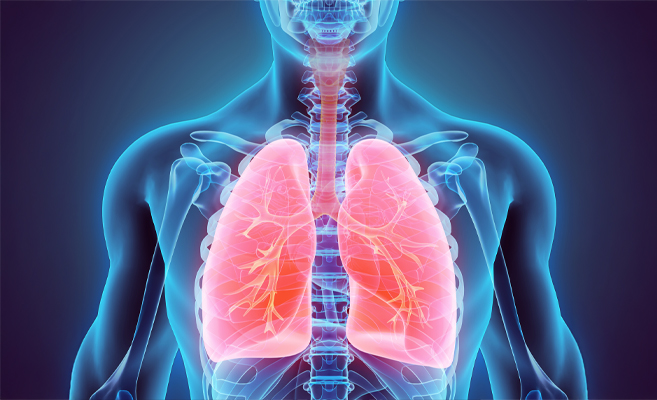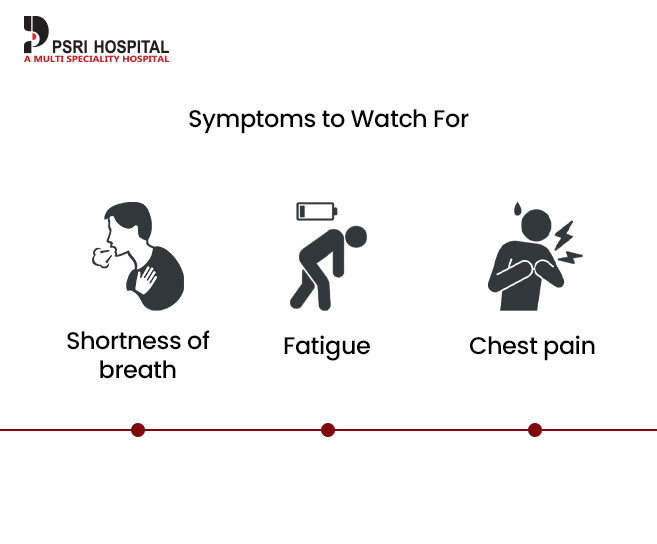How Respiratory System and Heart are Intertwined?

Have you ever thought about how each beat of your heart and every breath you take are closely connected? These two systems – your heart and lungs work together like partners in a delicate dance that sustains life. When one system struggles the other often feels the impact. This crucial relationship is often overlooked but it is very important for your health.
Your heart pumps oxygen rich blood through your body while your lungs supply that oxygen by processing the air you breathe. However, when there is a disturbance in either of these systems it can lead to significant complications. In this blog, we will explore the intricate connection between your heart and lungs, the symptoms to be aware of and why seeking guidance from the best cardiologist in Delhi NCR can help you stay on top of your health.
Let’s Understand the Connection – Do Heart and Lungs Work Together?
Yes, your heart and lungs are inseparable in maintaining overall health. These two organs rely on each other to keep your body functioning efficiently. The heart circulates oxygenated blood throughout the body while the lungs are responsible for bringing in oxygen from the environment and expelling carbon dioxide. This life-sustaining exchange is why Respiratory Problems and Heart Health are so closely linked.
When your lungs are not able to deliver oxygen properly your heart has to work harder to circulate what little oxygen is available. Likewise, if your heart is struggling to pump blood efficiently your lungs may not receive enough oxygenated blood, making breathing more difficult. For example:

What are the Symptoms of Heart and Lung Disease?
It is easy to ignore fatigue or shortness of breath as signs of a busy lifestyle. However, these can be early warnings of issues involving both the heart and lungs. Pay attention to the following heart and lung disease symptoms:
- Persistent shortness of breath especially during activities or at rest.
- Swelling in the legs, ankles or abdomen (often linked to heart failure).
- Chest pain or discomfort which may feel like pressure or tightness.
- Chronic cough or wheezing especially if it worsens over time.
- Fatigue or weakness that does not improve with rest.
If you notice any of these symptoms it is important to consult with a healthcare provider who can evaluate both systems. Seeking the expertise of the best cardiologist in South Delhi or a top heart surgeon in Delhi can help identify potential issues early and prevent severe complications down the line.
How Heart and Lung Diseases Are Interconnected?
Here is a closer look at how diseases in one system affect the other:
- Chronic Obstructive Pulmonary Disease and Heart Health – COPD is a condition that affects the lungs and makes breathing difficult. Over time, COPD can increase the risk of heart failure as it causes the heart to work harder to supply oxygen to the body.
- Congestive Heart Failure and Lung Complications – CHF happens when the heart cannot pump blood effectively causing fluid to back up into the lungs leading to shortness of breath and respiratory distress.
- Pulmonary Hypertension: This condition causes high blood pressure in the arteries of the lungs and is often a result of heart disease. It can cause difficulty breathing, chest pain and even heart failure if left untreated.
Understanding the connection between the heart and lungs is crucial in identifying early signs of complications and preventing further damage. This is why working with a healthcare professional who understands both systems is essential.
Why Early Diagnosis Matters?
Timely diagnosis and treatment of heart and lung problems are critical. Ignoring symptoms or delaying treatment can lead to severe health issues. Common diagnostic tools to detect potential issues include:
- Echocardiograms: These tests allow doctors to see the heart’s structure and function in action.
- Pulmonary Function Tests: These tests assess how well your lungs are working and can help determine the presence of conditions like COPD or asthma.
- Stress Tests: These tests evaluate how the heart responds to physical exertion and can uncover underlying heart issues.
By recognizing these symptoms early and seeking help from the best cardiac surgeon in Delhi NCR you can take control of your health and prevent the worsening of respiratory or heart problems.
Treatment Options for Better Results
The overlapping nature of heart and lung conditions often calls for a multidisciplinary approach. Here is how experts manage these interconnected issues:
- Medications: Doctors may prescribe medications like diuretics to reduce fluid buildup, bronchodilators to open airways or blood pressure medications to reduce strain on the heart.
- Lifestyle Changes: Adopting a heart-healthy diet, quitting smoking and engaging in moderate exercise can significantly improve both systems.
- Surgical Interventions: Procedures like bypass surgery or valve repair performed by the top heart surgeon in Delhi can restore proper blood flow and reduce complications.
- Advanced Therapies: Technologies such as extracorporeal membrane oxygenation (ECMO) offer life-saving support for patients with severe heart and lung failure.
Delhi has emerged as a hub for advanced medical care with top hospitals offering world class treatment. Consulting a cardiologist in Delhi at PSRI Hospital gives you access to specialists who understand the complex interplay between respiratory and cardiovascular health. International patients also frequently seek care in Delhi for its blend of expertise and affordability.
Taking Charge of Your Respiratory Problems and Heart Health
Proactively managing your heart and lung health can prevent complications and improve quality of life. Here’s how you can take the first steps:
- Schedule regular checkups especially if you have risk factors like smoking, obesity or a family history of heart or lung disease.
- Pay attention to symptoms and seek medical advice early.
- Choose a healthcare provider who collaborates across specialties for comprehensive care.
The journey to better health starts with awareness. Recognizing how the heart and lungs support each other is the first step to safeguarding your well-being.
Conclusion
The relationship between your heart and lungs is a delicate yet powerful system that keeps you alive and thriving. When one struggles the other often follows highlighting the need for holistic care. By understanding this connection you can take charge of your health and seek timely treatment from the best cardiac surgeon in Delhi NCR.
Remember, your health is your most valuable asset. Don’t ignore warning signs and take the first step toward a healthier future today.
FAQs
How do heart and lung problems affect each other?
Ans. Heart and lung issues are deeply interconnected. If one system is struggling it can put extra strain on the other, leading to symptoms like shortness of breath, chest pain and fatigue.
What are the common symptoms of heart and lung disease?
Ans. Key symptoms include shortness of breath, chest pain, fatigue, coughing and wheezing. These symptoms could indicate issues in either the heart or lungs and should be addressed promptly.
When should I see a cardiologist for heart and lung problems?
Ans. If you are experiencing any of the symptoms mentioned or if you have a history of heart or lung issues, it is important to consult with a best cardiologist in Delhi NCR for early diagnosis and treatment.
What tests help diagnose heart and lung conditions?
Ans. Common diagnostic tests include echocardiograms, pulmonary function tests and stress tests. These help assess heart and lung function and uncover underlying problems.
Can lifestyle changes improve heart and lung health?
Ans. Yes, Regular exercise, quitting smoking and maintaining a healthy diet can significantly improve heart and lung health, potentially preventing the onset of diseases or alleviating existing conditions.

 Book An Appointment
Book An Appointment Virtual Consultation
Virtual Consultation





